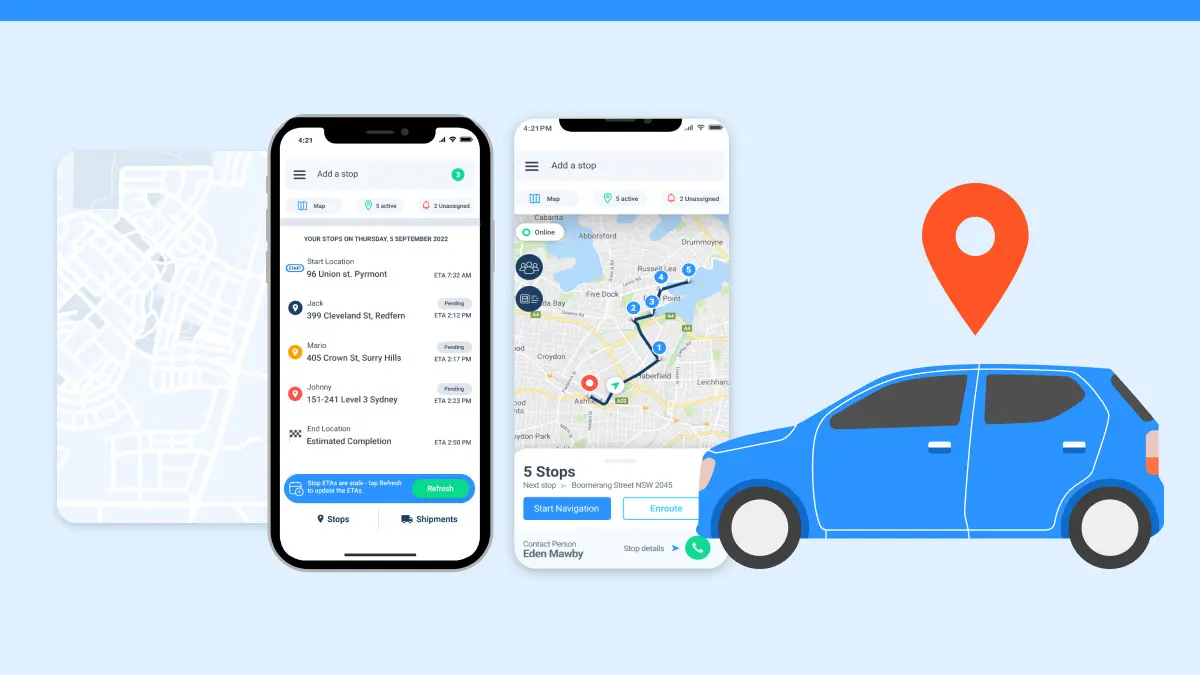How GPS Tracking Boosts Automobile Safety and Surveillance
How GPS Tracking Boosts Automobile Safety and Surveillance
Blog Article
Navigating the Future of GPS Tracking: Technologies, Difficulties, and Opportunities Ahead
As we stand at the crossroads of technological innovations and societal ramifications, the landscape of GPS tracking is poised for a transformative trip ahead. With terrific development comes great duty, as data privacy concerns loom big and safety and security difficulties in GPS monitoring raising important inquiries regarding safeguarding delicate information.
Advancement of GPS Innovation
The Advancement of GPS Technology has actually been noted by considerable improvements in precision, insurance coverage, and performance over the years. Originally developed for army objectives, general practitioner innovation has advanced to become an ubiquitous device in different industries, consisting of transportation, logistics, agriculture, and individual navigation. Early GPS systems were characterized by limited protection, reduced accuracy, and bulkier hardware requirements. With recurring technical technologies, GPS has transitioned to more accurate and efficient systems that offer international insurance coverage and enhanced accuracy.
One secret turning point in the evolution of GPS technology was the growth of Discerning Schedule (SA) in the 1990s, which purposefully broke down the accuracy of civilian general practitioner signals. The discontinuation of SA in 2000 considerably boosted GPS accuracy for noncombatant users. Succeeding developments, such as the deployment of added satellite constellations like Galileo and BeiDou, have actually even more improved GPS protection and precision, making it a crucial tool in everyday life. As GPS innovation proceeds to progress, we can expect more improvements in precision, insurance coverage, and effectiveness, opening up new opportunities for advancement and applications throughout various industries.
Real-Time Monitoring Developments
Building on the advancements in GPS technology that have actually changed precision and insurance coverage, real-time monitoring has actually emerged as a crucial location of development with profound implications across various fields. Real-time monitoring developments allow organizations and organizations to keep an eye on cars, personnel, and properties instantly, providing important insights for decision-making processes - gps tracking. By leveraging real-time data, companies can improve functional performance, improve client service, and guarantee the security and safety of their properties
Among the essential developments in real-time monitoring is the assimilation of synthetic knowledge and equipment understanding algorithms, which make it possible for anticipating analytics and anomaly detection. These abilities permit positive upkeep organizing, route optimization, and risk reduction techniques. The development of real-time tracking systems has led to the advancement of customizable dashboards and mobile applications, empowering individuals to gain access to critical info anytime, anywhere.
Data Privacy Worries

Information personal privacy worries include numerous facets, consisting of the storage, sharing, and retention of area data. Organizations read here should carry out durable security actions to protect general practitioner monitoring information from cyber hazards and information violations. Transparent policies pertaining to data collection methods and the purpose of tracking are crucial to build trust with customers and guarantee compliance with data security policies.
Protection Difficulties in GPS Tracking
Addressing data privacy worries in GPS monitoring is delicately linked to mitigating the safety and security challenges that develop from potential susceptabilities in the modern technology. Among the primary security obstacles in GPS tracking is the threat of unapproved accessibility to delicate area information - gps tracking. Cyberpunks might obstruct general practitioner signals, adjust area information, or perhaps track people without their authorization. This not only attacks individual privacy yet additionally poses severe safety dangers.
An additional safety challenge is the capacity for jamming or spoofing general practitioner signals. By relaying false signals or conflicting with legit ones, malicious actors can trick GPS receivers and manipulate place data. This postures threats not only for private customers yet likewise for governmental and army applications that rely upon exact positioning information. Carrying out durable encryption, authentication measures, and signal verification methods are vital action in addressing view these protection difficulties in GPS tracking.
Arising Opportunities in the Sector
The expanding area of General practitioner tracking modern technology presents a myriad of promising chances for market growth and advancement. One essential chance exists in the expansion of General practitioner tracking applications beyond standard industries. General practitioner monitoring can change individual treatment by allowing remote surveillance of important indications and making certain timely clinical help.
Another significant possibility in the GPS tracking sector is the assimilation of advanced analytics and synthetic knowledge. By leveraging these innovations, organizations can acquire valuable insights from GPS data to enhance operational efficiency, boost decision-making procedures, and offer customized services to customers. Additionally, the increasing need for connected tools and IoT solutions offers a ripe chance for GPS tracking business to expand their offerings and create cutting-edge options that deal with an extra linked world. By profiting from these arising chances, GPS monitoring business can position themselves for continual development and success in the dynamic landscape of the industry.
Verdict
Finally, the future of GPS monitoring is noted by continual development and innovation in modern technology. Real-time monitoring improvements and emerging opportunities existing encouraging potential customers for the industry. Nevertheless, data personal privacy worries and safety obstacles continue to be significant hurdles that need to be attended to. As the market moves forward, browsing these difficulties will certainly be essential to ensure the continued development and success of general practitioner monitoring modern technology.
With excellent technology comes wonderful responsibility, as data personal privacy problems loom large and protection obstacles in General practitioner tracking raising essential concerns about protecting sensitive details.With the fast spreading of GPS tracking innovation in numerous industries, dealing with information privacy concerns has actually come to be a vital important for both services and consumers alike. The collection of location data via GPS tracking elevates significant privacy issues, as it makes it possible for the tracking of individuals' habits and motions. Organizations utilizing GPS tracking have to prioritize guarding this data to prevent unapproved accessibility or misuse that company website could jeopardize people' personal privacy rights.
Services must execute durable security actions to shield General practitioner monitoring information from cyber threats and data violations.
Report this page